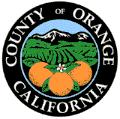Orange County Human Relations Commission
1300 S. Grand Ave., Bldg. B, Santa Ana, CA 92705
Serving Orange County since 1971.
August 28, 2016
In the state of California a growing number of schools and districts have created and implemented Ethnic Studies curricula and classes. In the last year a small number of Orange County High Schools have begun to offer these courses as well.
These offerings seek to address an underrepresentation of communities of color in the current curriculum, to create a deeper sense of connection between students of color and their history in and contributions to this nation, to expose any interested students to this extended and inclusive historical content, and to add to the strategies schools can use to close the achievement gap.
WHAT THE RESEARCH SAYS
After reviewing studies on Ethnic Studies Dr. Sleeter concludes, “there is considerable research evidence that well designed and well-taught ethnic studies curricula have positive academic and social outcomes for students.” Ethnic studies curricula are supported by research documenting a positive relationship between the racial/ethnic identity of students of color and academic achievement, as well as research on their impact. Three studies with middle school students documented high levels of student engagement when literature by authors within the students’ ethnic background was used. Research on five literacy curricula (three involving African American secondary students and two involving Native American students) documented significant growth in students’ literacy skills. Research on two math/science curricula (both involving Native American students) found a positive impact on student achievement and attitudes toward learning. Research on five curricula (three in social studies, one in literature, and one in ‘life skills’) found a positive impact on students’ achievement and sense of agency. Only one reviewed study did not have the intended impact, largely because how ethnic culture was conceptualized in the curriculum conflicted with how students lived culture everyday.
WHAT THE RESEARCH RECOMMENDS
Teachers who deliver Ethnic Studies courses need additional preparation and support to ensure that courses are effective. According to Dr. Allyson Tintiangco-Cubales, of the Department of Asian American Studies at San Francisco State University, teachers should not only be provided professional development in the content of the courses but also the pedagogy. Ethnic Studies pedagogy must be, “culturally and community responsive,” meaning that the identities and lived experiences of the students are considered when delivering the content, in other words, the students must be able to relate to the content and be engaged in a learning process, not a one-way transmission of knowledge from teacher to students. Research has shown that teachers who received training in the content, but not the pedagogy, still used traditional teaching methods—they saw education as “content transmission” and were less successful and struggled more with classroom management when teaching Ethnic Studies.
CONTROVERSY IN THE PAST
In 2010, critics of Ethnic Studies in Arizona argued that the classes were divisive. As a result, Arizona House Bill 2281 was passed. This bill banned Arizona schools from teaching classes that were deemed “designed for students of a particular ethnic group, [that] promote resentment or advocate ethnic solidarity over treating pupils as individuals.”
At the time, Tucson Unified School District officials responded that Chicano studies classes benefit students and promote critical thinking. “We don’t teach all those ugly things they think we’re teaching,” said Judy Burns, the president of the district’s governing board, according to the LA Times.
However, in her review of research on Ethnic Studies published by the National Education Association,
Dr. Christine Sleeter asserts, “although commonly described as “divisive,” un-American, and teaching racial separatism and even overthrow of the U.S. government… ethnic studies curricula very intentionally include historically marginalized communities and students in a multicultural American curriculum and narrative, often supporting and developing cross-group communication.”
Arizona’s HB2281 is currently being challenged in the courts.
COMMISSION ENDORSES ETHNIC STUDIES CLASSES IN K-12 EDUCATION
After reviewing the research and hearing from local Orange County teachers who are teaching Ethnic Studies courses, the Orange County Human Relations Commission sees incredible potential for this curriculum in our local schools and with our students. We support classes that affirm the important, yet underrepresented, histories of our students and their communities as well as the contributions they have made to this country.
The Commission applauds teachers who are taking the steps to create and deliver these classes and we commend the young people who take the time to enroll in Ethnic Studies classes to deepen their knowledge of the history of our nation and the many people who make up that history.
The Commission also supports the training of local teachers in the content and pedagogy of Ethnic Studies required to make these classes effective in improving academic and school connectedness outcomes for students and schools.
Lastly, the Commission has faith that our local educational leaders who adopt Ethnic Studies Programs will guide their schools, teachers and students through the process with great care and attention. It is important that these programs not only teach students about their diverse histories, but also provide the foundation for students to learn and communicate across differences and build bridges of understanding.
About the Orange County Human Relations Commission
The Commission was founded in 1971 by the Orange County Board of Supervisors in collaboration with the OC League of Cities. Over the last 25 years the Commission has documented, reported, and responded to hate crimes in Orange County. The Commission provides support for victims of hate crimes and trainings for the community, educators, students and law enforcement to increase the accuracy of reporting and decrease the number of hate-related crimes and incidents. To report a hate crime that occurred in Orange County, or learn more, contact Don Han at don@splash.ochumanrelations.org or 714-480-6576 or visit www.splash.ochumanrelations.org/hatecrime. Archived OC Hate Crime Reports can be downloaded at www.splash.ochumanrelations.org/hatecrime/hate-crime-reports.
Commissioners
Chair: Becky Esparza
Vice-Chair: Rabbi Richard Steinberg
Bekele Demissie, Chief Mike Hamel, Kenneth Inouye, Timothy M. Kowal, Bang Van Pham, Chiarina Piazza, Elliott Singer ,Sean Thomas, C. William Wood


